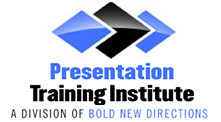No matter how well you have prepared for your presentation, you never know when you might receive an awkward question or comment. Rather than let questions and objections throw you off course, learn how to handle these situations with confidence. There are a number of ways to answer a question and the kind of answer you give and how you deliver it will go a long way in building positive relationships with your audience. So, consider the following tips for how to handle questions and objections in a courteous way that makes you look professional and knowledgeable.Â
1. Tell the audience in advance when you will be taking questions.Â
One of the most distracting things for a speaker is to get asked a question when they are in mid-flow of their presentation. This can interrupt their train of thought and throw them off balance. An easy way to avoid this is by letting your audience know in advance when you will be taking questions. You may prefer to take questions at the end of each section or at the conclusion of the entire presentation. Either way, letting your audience know ahead of time will prevent you from being surprised and distracted in the middle of your presentation.Â
2. Anticipate questions in advance.Â
Part of your presentation preparation is preparing for possible questions. Look at the content through the eyes of your audience and try to anticipate what questions they might have and how you will answer them. You won’t be able to predict every question in advance, but hopefully giving it some thought will allow you to prepare some answers for questions you might be expecting.Â
3. Pause before answering the question.
No matter how well you know the answer to a question, it is always a good idea to pause briefly before launching into your answer. This gives the person plenty of time to finish their question and add clarifying points if needed. This also shows that you are taking the time to respectfully consider the question and your answer. It also gives you time to think about the best answer and deliver it in a powerful and confident manner.Â
4. Acknowledge the value of each question.Â
A great speaker validates the questioner by making them feel that their question is valid and constructive. There are plenty of ways to express acknowledgement before answering the question or responding to the comment. Here are a few examples:Â
- “That’s a great question that I get asked a lotâ€
- “You’re making a great pointâ€
- Thank you for asking thatâ€
- “That’s a really interesting point that I haven’t consideredâ€
- “Thats a great question that we have discussed with our teamâ€
5. Always keep your cool.Â
Even if the questioner appears to be trying to get a rise out of you, never get angry or defensive. This would never make you look credible and professional. Rather, remain courteous and respectful, acknowledge the questioner, and if needed, simply ask if you can get back to them at a later time or let them know you would be happy to discuss it in more detail after the presentation.
